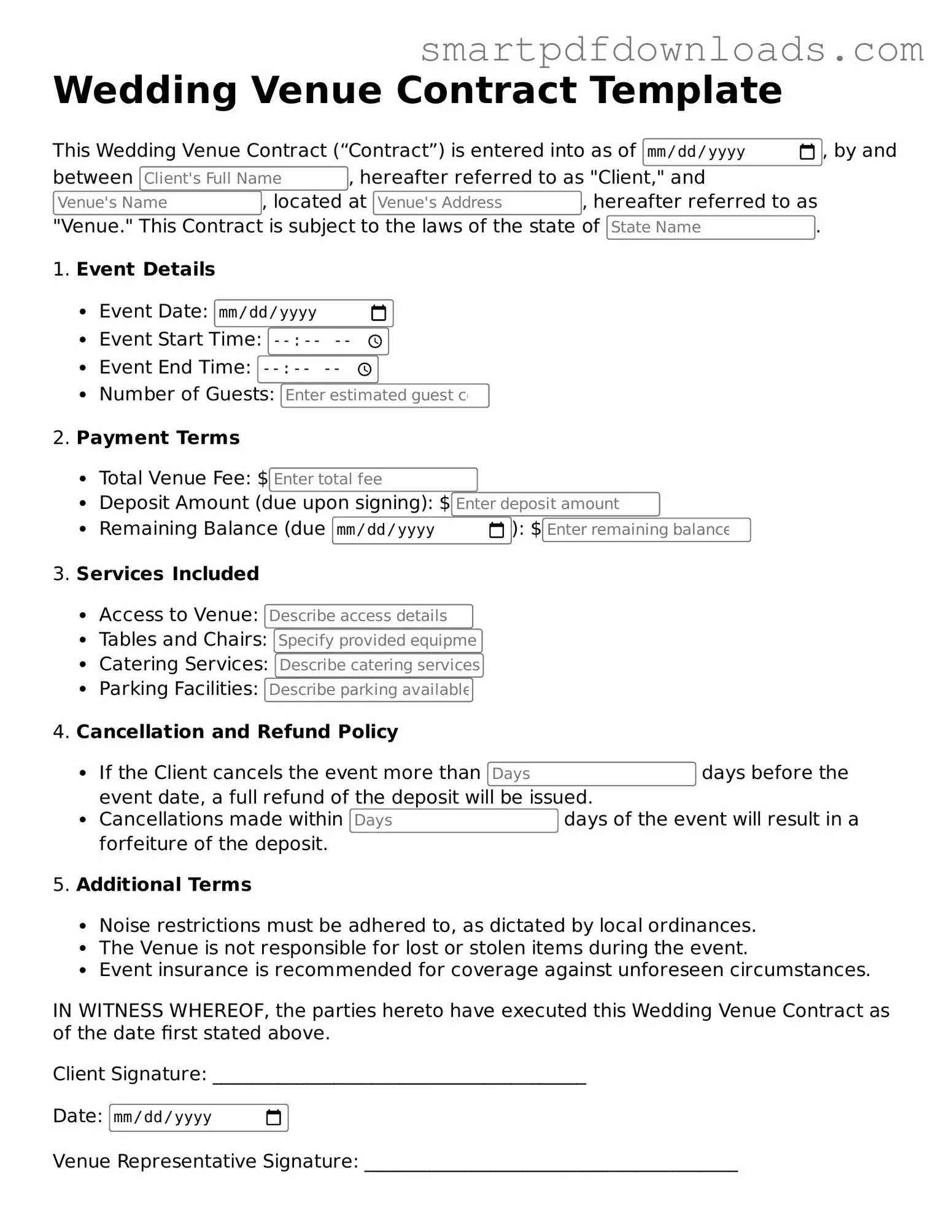Free Wedding Venue Contract Form
The Wedding Venue Contract is a legal document that outlines the terms and conditions between a couple and a venue for their wedding event. This contract serves to protect the interests of both parties by clearly defining responsibilities, payment schedules, and cancellation policies. Understanding the key components of this contract is essential for ensuring a smooth and successful wedding planning experience.
Edit Wedding Venue Contract Online

Free Wedding Venue Contract Form
Edit Wedding Venue Contract Online

Edit Wedding Venue Contract Online
or
⇓ PDF File
Finish the form and move on
Edit Wedding Venue Contract online fast, without printing.